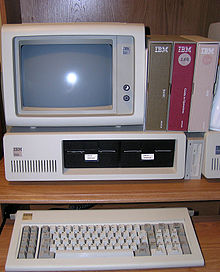 by Mike O’Mary
by Mike O’Mary
I don’t make resolutions on New Year’s Eve anymore.
Now before you put me in the “Scrooge” category, allow me to add that it’s not because I think resolutions are a bad thing. For the most part, I think they may be a good thing. They give people goals, and goals help us live our lives in an orderly fashion.
But we also need hope, and my concern is that too many goals–especially goals in the form of New Year’s resolutions–can have a bad affect on hope.
All too often, we rush blindly from one goal to another or from one project to another without really examining what we’re doing. I’ve been guilty of this on more than one occasion. I love to take on household projects–paint the dining room, build some new shelves in the basement, refinish that old table–all of which give me some degree of pleasure and satisfaction, but all of which, if taken on in quick succession, ultimately serve as distractions and diversions from our real purpose here.
What is our real purpose here? I won’t pretend to be able to answer that question. But I suspect that our purpose–and whatever meaning there is to our lives–is something we have to discover for ourselves. Some think meaning comes through the pursuit of knowledge. Others feel art and self expression hold the meaning of life. Still others feel that to leave behind a healthy, well-adjusted child is no small feat.
Whatever the meaning of life may be, I’m pretty sure it doesn’t have to do with a fresh coat of paint on the dining room wall. Not, as I said, that there’s anything wrong with doing a little home improvement–I personally find it relaxing at times–but we have to guard against letting such projects take on lives of their own.
So I don’t make resolutions any more. I’ve got enough things I’m trying to do in my life without putting more pressure on myself. Instead, what I do is to sit down sometime before the end of the year??and hopefully, a few times during the year, too–and think about why I’m here and what I’m doing with my life. I figure that if I keep working on home improvements, I’m eventually going to have a pretty nice house. When that time comes, I want to make sure there’s a pretty nice human being to occupy that house.
Mike O’Mary is founder of Dream of Things and of the Note Project, a campaign to make the world a million times better by inspiring participants to write 1 million notes of appreciation. “No Resolutions” is taken from his books Wise Men and Other Stories.

 by Mike O’Mary
by Mike O’Mary

 by Mike O’Mary
by Mike O’Mary by Mike O’Mary
by Mike O’Mary by Mike O’Mary
by Mike O’Mary